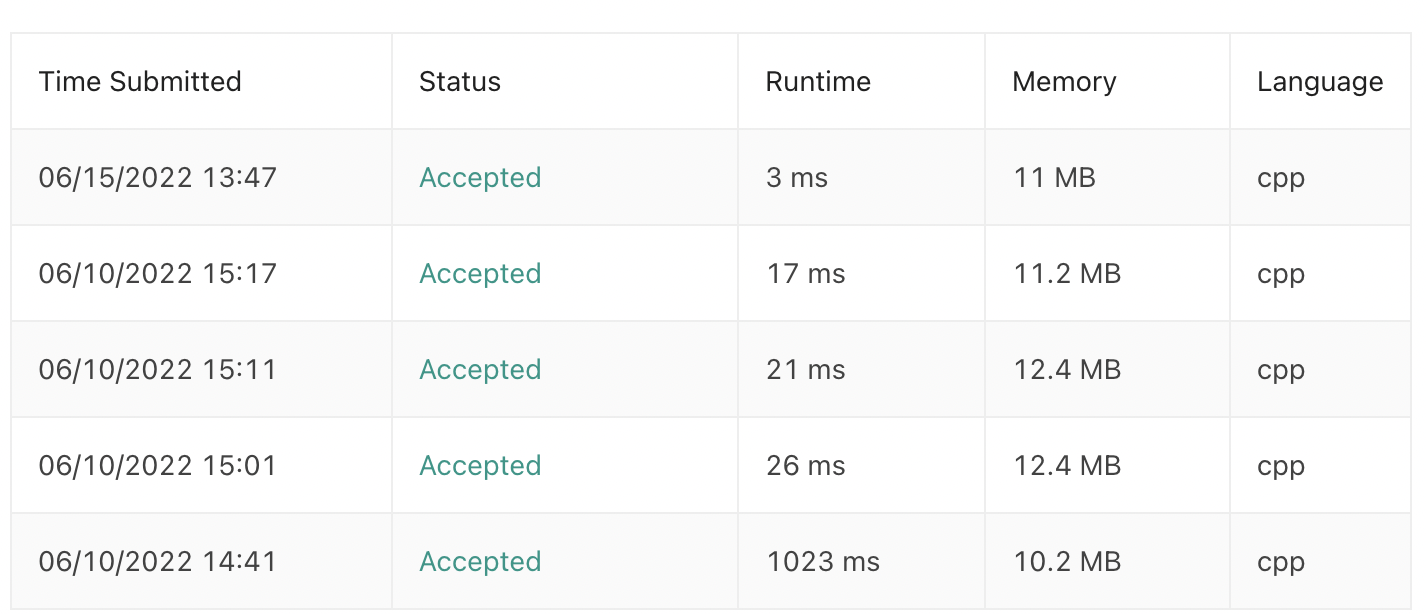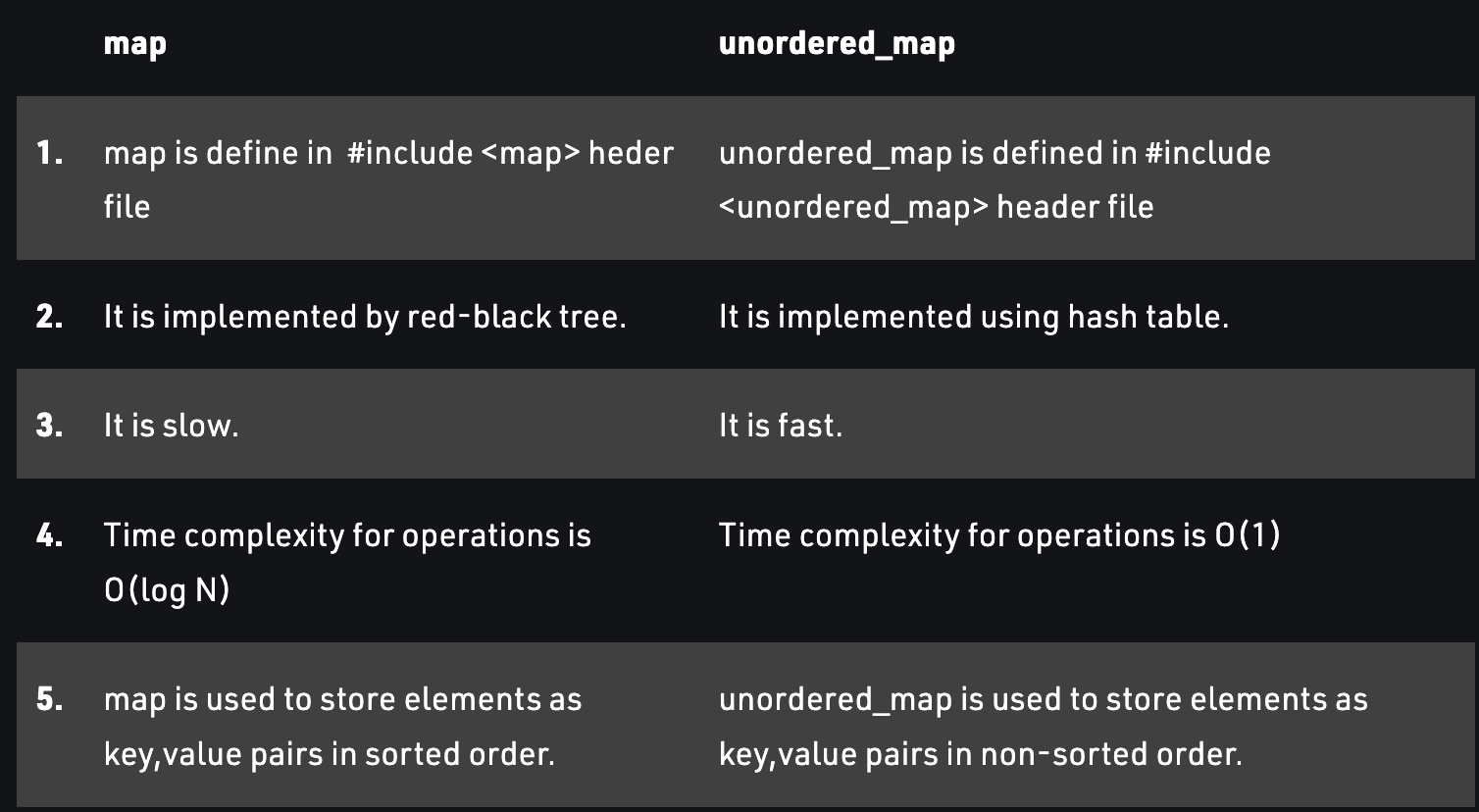TWO SUM problem results

First Blood
Using “two loops” to solve the problem is not efficient.
1
2
3
4
5
6
7
8
9
10
11
12
13
14
15
16
17
18
19
20
21
{
class Solution {
public:
vector<int> twoSum(vector<int>& nums, int target) {
vector<int> indices(2);
for(int i = 0; i < nums.size(); i++)
{
for(int j = 0; j < nums.size(); j++)
{
if((nums[i] + nums[j] == target) && (i != j))
{
indices[0] = i;
indices[1] = j;
return indices;
}
}
}
return indices;
}
};
}
Double Kill
use std::map to record “key-value”, in order to speed up the searching process. key: the value of the element in nums array value: the index of the element in nums array
1
2
3
4
5
6
7
8
9
10
11
12
13
14
15
16
17
18
19
20
21
22
23
24
25
26
27
28
29
30
31
32
33
34
{
class Solution {
public:
vector<int> twoSum(vector<int>& nums, int target) {
map<int,int> key_value;
//loop array nums, record value_index pair
for(int i = 0; i < nums.size(); i++)
{
key_value[nums[i]] = i;
}
vector<int> indices(2);
//loop array nums, find y
for(int i = 0; i < nums.size(); i++)
{
int y = target - nums[i];
if(key_value.find(y) != key_value.end())
{
int y_index = key_value[y];
if(i != y_index)
{
indices[0] = i;
indices[1] = y_index;
return indices;
}
}
}
return indices;
}
};
}
Triple Kill
some minor update
1
2
3
4
5
6
7
8
9
10
11
12
13
14
15
16
17
18
19
20
21
22
23
24
25
26
27
28
29
30
31
32
33
34
{
class Solution {
public:
vector<int> twoSum(vector<int>& nums, int target) {
map<int,int> key_value;
vector<int> indices(2);
int i = 0;
for(i = 0; i < nums.size(); i++)
{
key_value[nums[i]] = i;
}
//Declare and define y here, avoid define y multiple times inside the loop
int y = 0;
for(i = 0; i < nums.size(); i++)
{
y = target - nums[i];
if(key_value.find(y) != key_value.end())
{
if(i != key_value[y])
{
indices[0] = i;
indices[1] = key_value[y];
return indices;
}
}
}
return indices;
}
};
}
Quadra Kill
Using one loop is enough to find the pair
1
2
3
4
5
6
7
8
9
10
11
12
13
14
15
16
17
18
19
20
21
22
23
24
25
26
27
28
29
30
31
{
class Solution {
public:
vector<int> twoSum(vector<int>& nums, int target) {
map<int,int> key_value;
vector<int> indices(2);
int i = 0;
int y = 0;
for(i = 0; i < nums.size(); i++)
{
y = target - nums[i];
if(key_value.find(y) != key_value.end())
{
if(i != key_value[y])
{
indices[0] = i;
indices[1] = key_value[y];
return indices;
}
}
else
{
key_value[nums[i]] = i;
}
}
return indices;
}
};
}
Penta Kill
Use unordered_map instead of map  See more detail in The Image is from
See more detail in The Image is from
